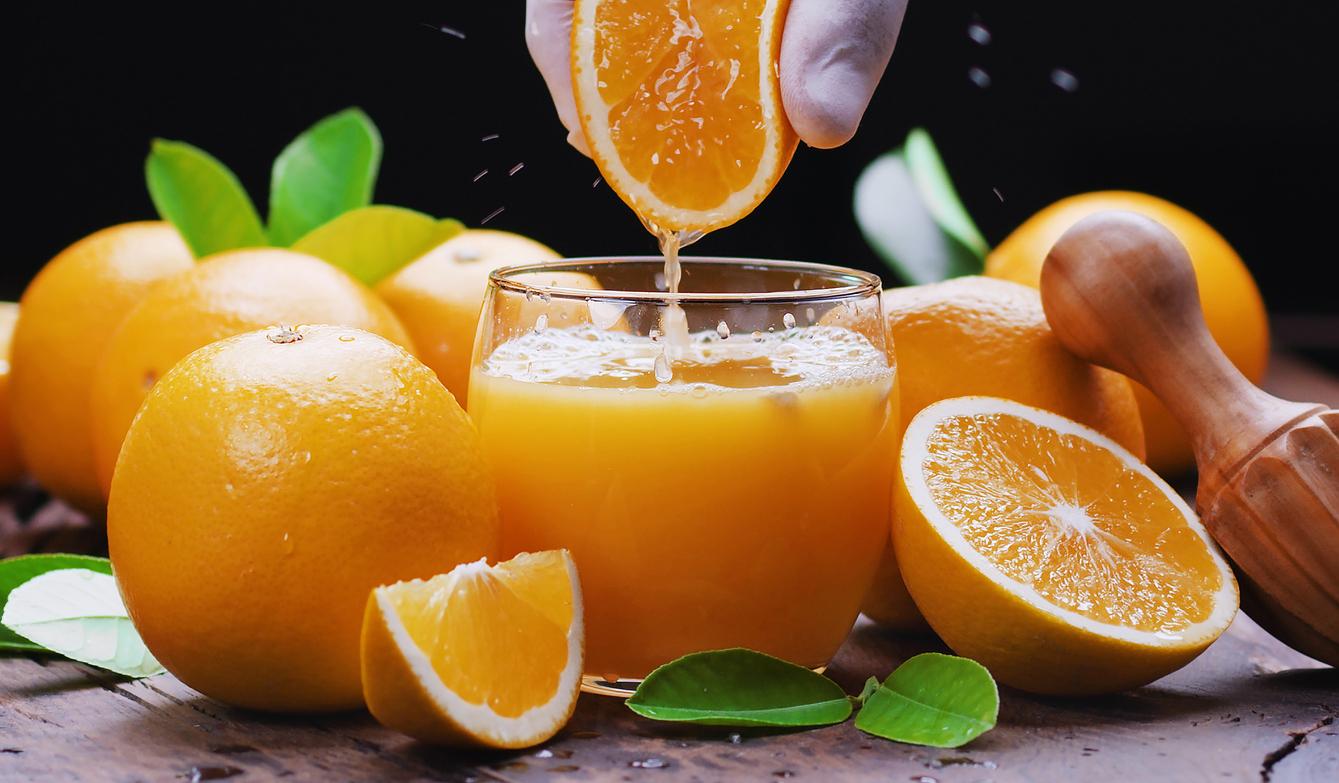While pressed fruit juices are healthy, they seem to promote slight weight gain in children and adults, according to a new study.

- Daily consumption of pressed fruit juice is associated with a slight increase in body mass index (BMI) in children, according to a new study.
- If the weight gain does not seem significant, the link between fruit juices and the increase in BMI can become problematic in the event of large consumption.
- Researchers thus support recommendations to limit fruit juice consumption in order to prevent excess calorie intake and weight gain.
Pressed fruit juices provide vitamins and antioxidants… but also potentially extra pounds. Drinking a glass or more of pure fruit juice per day is linked to a small amount of weight gain in adults and an increase inBMI in children, according to a new study.
Juice : a slight weight gain with each glass
Are pressed fruit juices really good for your health? To answer this question, researchers from several Canadian and American universities took the results of 42 studies on the subject, 17 of which concerned children and 25 adults. The analyses, revealed in the review JAMA Pediatrics Openshow that each additional serving per day of 100% fruit juice is associated with an increase inBMI of 0.03.
“Our results indicate that consumption of pure fruit juice was associated with weight gain in children, with younger children showing greater weight gain”said co-author Michelle Nguyen of the University of Toronto, interviewed by MedPage Today.
Initially, scientists did not find a link between pressed juice consumption and weight in adults due to variations in how calories were measured. On the other hand, when these elements are adjusted, a slight increase inBMI (0.02 per glass) is observed.
Nutrition : avoid 100% pure juice with young children
Of course, the weight gains are not huge. However, the cumulative effect of each drink can become problematic if consumed excessively. This leads researchers to support public health directives encouraging people to limit the consumption of pure fruit juices in order to prevent overweight and obesity.
“Thus, it is recommended to delay the introduction of 100% pure juice to young children, to moderate portions and to favor whole fruits. Although the effect sizes were modest, small gains inBMI over time can justify it over the course of life. PTherefore, limiting fruit juice consumption in children is an important strategy for them to develop healthy weight trajectories.”explain Michelle Nguyen.

Pressed juice: watch out for fructose
Interviewed by CNNco-author Dr. Walter Willettprofessor of epidemiology and nutrition at Harvard TH Chan School of Public Health and professor of medicine at Harvard Medical School of Boston, recalls: “A fundamental problem with juice is quantity. Eating fruit this way makes it easier to overdose. For example, how often do we eat three oranges? However, a glass of orange juice contains about three oranges which can be consumed in a minute or two. And we can take it again and it will add a lot of calories and lead to a blood sugar spike.”
Indeed, the expert points out that whole fruits and pure juices are not metabolized in the same way. With whole fruits, fiber allows for a slow release of fructose (sugar of natural origin present mainly in fruits and honey, Editor’s note) in the blood. On the other hand, pressing destroys the fibers, leaving almost only the fructose. The latter is then absorbed very quickly by the body, promoting spikes in blood sugar and calories.
















